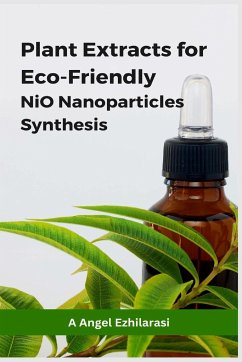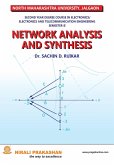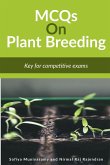In recent years, the development of eco-friendly and sustainable synthesis of nanoparticles has been a topic of great interest in the field of nanotechnology. The use of plant extracts as reducing agents for the synthesis of nanoparticles has emerged as a promising green approach due to their abundance, low toxicity, and cost-effectiveness. NiO nanoparticles, in particular, have a wide range of applications in electronics, catalysis, energy storage, and biomedical fields. The author, A Angel Ezhilarasi, focuses on the use of plant extracts for the eco-friendly synthesis of NiO nanoparticles. The plant-mediated synthesis approach involves the use of phytochemicals and biomolecules present in the natural extracts of medicinal plants. The plant extracts act as reducing agents, and the metal ions are reduced to form metal oxide nanoparticles. This method offers a sustainable and eco-friendly alternative to the conventional chemical reduction methods that use hazardous chemicals. The green chemistry approach of plant-mediated synthesis also provides a platform for the development of sustainable and biogenic synthesis of nanoparticles. The use of bioreactors and green reagents further enhances the environmental-friendly synthesis of nanoparticles. The author emphasizes the importance of sustainable technology in the synthesis of nanoparticles and how plant-based materials can be used to achieve this goal. The synthesis of NiO nanoparticles using plant extracts offers a wide range of advantages such as a green approach, cost-effectiveness, low toxicity, and biocompatibility. The use of plant-based materials for the production of NiO nanoparticles opens up new possibilities for the development of eco-friendly and sustainable materials. The author highlights the importance of plant-mediated reduction and the potential of this method to replace conventional chemical reduction methods. In conclusion, A Angel Ezhilarasi's research on the use of plant extracts for the eco-friendly synthesis of NiO nanoparticles offers a promising approach for the development of sustainable and biogenic synthesis of nanoparticles. The use of green chemistry principles, bioreactors, and green reagents further enhances the environmental-friendly synthesis of nanoparticles. The potential of plant-mediated synthesis to replace conventional chemical reduction methods underscores the importance of sustainable technology in the field of nanotechnology. .








